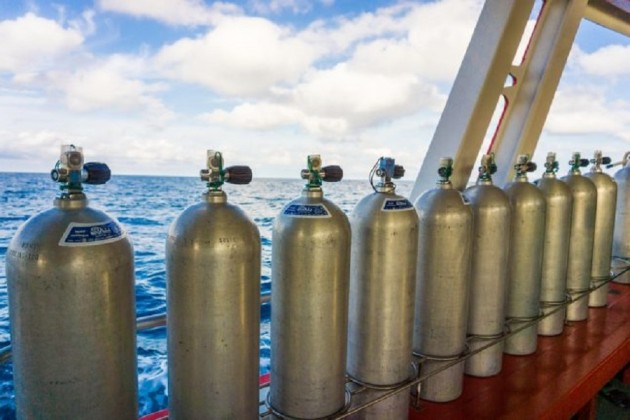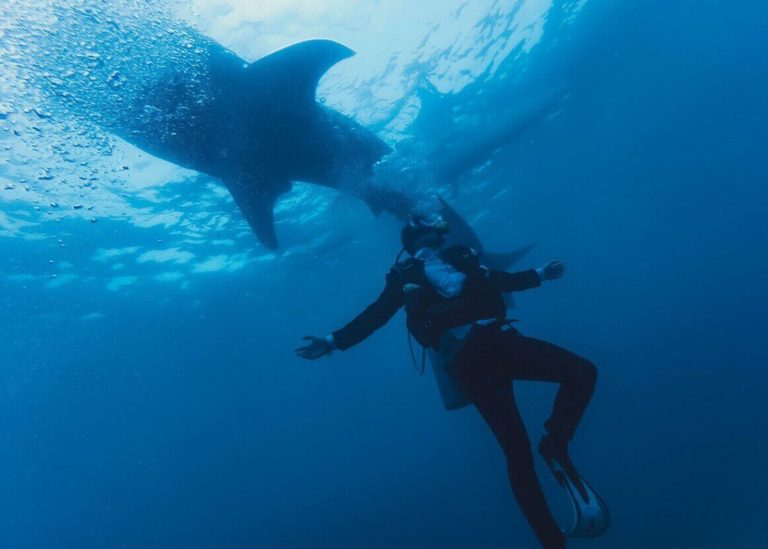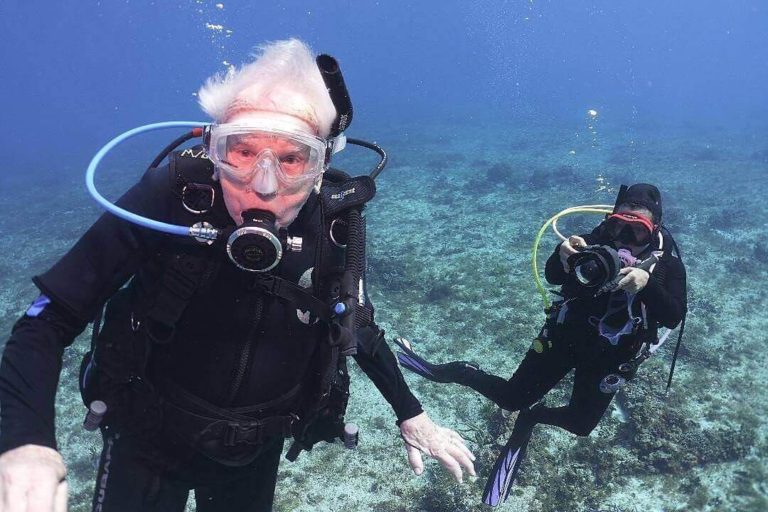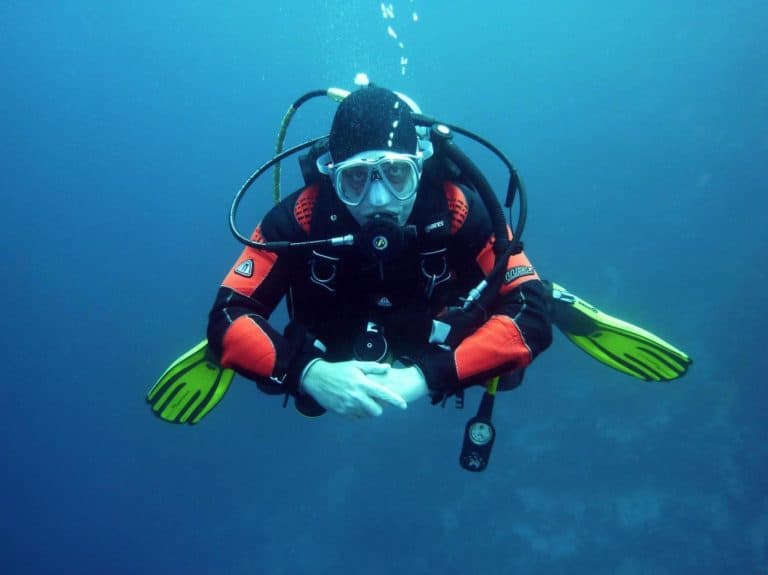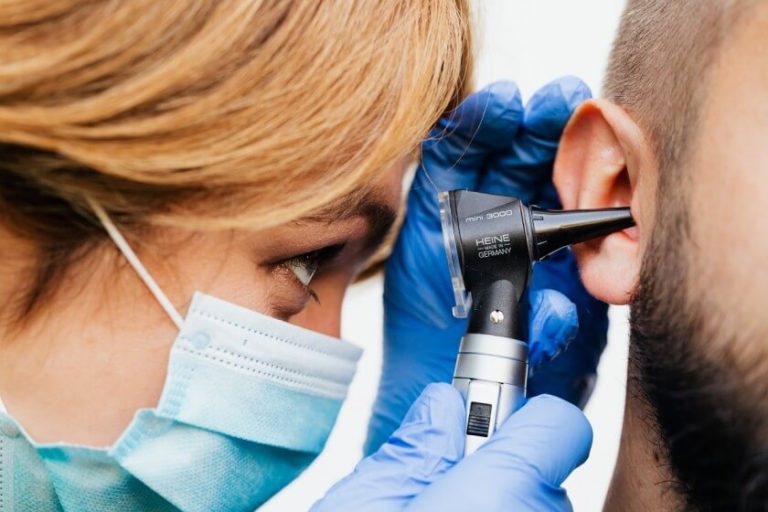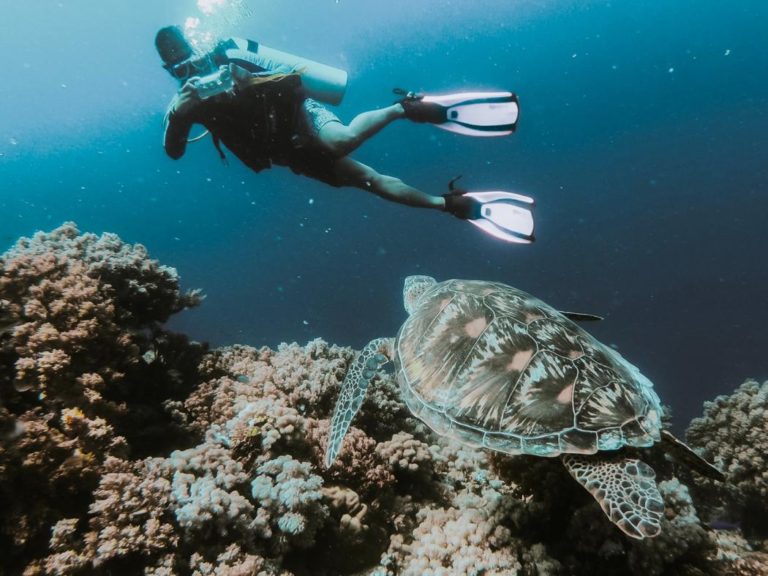Does Air in a Scuba Tank Go Bad
Maybe you just bought your first scuba tank or are new to scuba diving and probably wondering does air in a scuba tank go bad?
Air in a scuba tank doesn’t go bad when stored in the right conditions. Scuba tanks are filled with filtered and purified air which will last for many years to come under the right conditions.
While the air in a scuba tank has no expiry date, there are some important factors to look into before using a scuba tank that has been lying around your garage for the past few months or years.
As a general rule of thumb, scuba tanks should get a Visual Inspection each year and a HYDRO test every five years.
These tests are done by professionals and ensure your safety while using the scuba tank. Just like we visit doctors for general checkups, or when you take your car for servicing, your scuba tanks need checkups too.
During these tests and inspections, the professional inspecting your tanks can easily detect a defect in time. There are some things a beginner may fail to notice that can be a potential risk factor.
This is only an overview of scuba tanks and the air in them. In the next few paragraphs, we’ll look deeper into how to properly store your scuba tanks, how long air lasts or is safe for use, and when you should consider replacing the air in your tank.
Let’s dive into it!
How Long Can Air Be Stored In A Scuba Tank?
A scuba tank filled with purified air should not be stored for more than 3 months. Full tanks have higher pressure within and increase the chances of corrosion on the inside.
Scuba tanks that are not full to capacity can last for many years to come under the right conditions and pressure.
Scuba tanks should only be stored at a pressure of 200 psi. This is the ideal pressure to keep moisture out and prevent corrosion that starts from within the tank.
While a properly stored scuba tank can last for years, it’s important to take the tank(s) for Visual Inspection every year. Tanks must also undergo a HYDRO test after every five years.
If you haven’t gone scuba diving in over a year it’s normal to forget about your scuba equipment and gear. Before using the tank stored in your basement have a professional inspect it for any dents, signs of corrosion, tears, or any other signs of a high-risk tank.
Depending on your physical location air in your scuba tanks may last longer. For instance, divers leaving in extremely cold regions will find that the air in their tanks is safe for use even after 10 years.
Some extremely cold areas will act as a refrigerator for the air making it last longer.

Read More: Can You Use a Medical Oxygen Tank for Scuba Diving?
Do Scuba Tanks Go Bad
A scuba tank is considered gone bad if there is corrosion starting from inside.
Old scuba tanks are primarily made using steel. New scuba tanks are made using aluminum.
Looking at the metal around us, steel will start corroding or rusting rapidly when exposed to moisture. Aluminum on the other hand doesn’t rust or corrode. This is because aluminum is made with a protective layer (aluminum oxide) already in place.
Aluminum oxide protects the scuba tank from taking up any oxygen from the air causing corrosion.
Steel scuba tanks on the other hand can start using up some oxygen from the air inside causing corrosion.
Under the right conditions and when stored for a very long time, the tanks will corrode making the air unsafe for use.
So technically scuba tanks made using aluminum will naturally last longer and keep it air safe for us for long periods.
Other factors that can interfere with the quality of air inside a scuba tank or the scuba tank itself include dents and how you store your tank.
During a visual inspection or a hydro test, the inspector will advise you if the tank is in bad shape and you need a new one.
Can You Store Scuba Tanks Full?
Yes, you can store scuba tanks full but only for a maximum of 3 months.
Full scuba tanks have a higher tank pressure and will onset corrosion from the inside due to the higher moisture content.
Oxygen availability and pressure allow the oxidation of steel scuba tanks.
Many divers prefer storing their scuba tanks half empty or almost empty to prevent corrosion.
Storing highly pressurized tanks for too long could also cause explosions. While scuba tank explosions are very rare, doesn’t mean they can’t happen.
When the pressure has been building up for a long time once exposed to the right conditions there is a high chance of a tank explosion.
But if you find yourself with a full tank and don’t plan on scuba diving in the next couple of months, the best option would be to lend the tank to a friend.
They can use some of the air in their next dive and then it’s safer for you to store it as long as needed.
Also, consider only filling your tanks fully when planning a diving trip. This way you remove any dilemma of storing a full tank in your garage.

How Often Should a Scuba Tank Be Serviced
As a general rule of thumb, a scuba tank should receive a Visual Inspection every once a year and a HYDRO test after every five years.
During a Visual Inspection, the inspector checks for dents, corrosion, cuts, coating defects, any bulging points, and stress lines on the tank.
It’s important to have a qualified visual inspector do this and not a friend with diving experience. The inspectors have a sharp eye for detail and will see even the slightest issues on your scuba tank.
If you are a new owner of diving equipment, the inspectors can share some of the best tips to store your tank to make it last longer.
A HYDRRO test on the other hand checks if the scuba tank structure is still intact. Checking for any dents or bulging that could interfere with pressure, causing the tank to bust.
The tanks are subjected to tests such as placing them in a pressurized chamber with water. During this test, the inspector checks for the tank’s expansion by gauging how much water is displaced.
Read more detailed articles on these tests here
How Do You Store A Scuba Tank Long Term
- Store your scuba tank(s) in a cool dry place
- You can make a stable storage rack for your tanks especially if you want to store them in an upright position. This will prevent the tanks from falling over.
- During your dive trip never store the tanks in an upright position as it’s easy for them to fall and roll onto someone’s toes. Scuba tanks will get dents if they keep falling interfering with the air quality and the tank.
- Refrigerate your air if you plan on taking long breaks from scuba diving
- Handle the valves carefully and not forcefully. Remember to rinse the valve with fresh water after each dive.
- Store your tanks at 200 psi pressure to prevent moisture entry into your tank causing corrosion.
- Refill your tanks at reputable dive centers to ensure you are getting quality air with no moisture in it.
Will Freezing Help Air in My Scuba Tank Last Longer
Yes, freezing will help the air in your scuba tank last longer.
Once thawed don’t refreeze the air again.
In extremely cold regions the natural weather conditions will act as a natural freezer or fridge. In these areas, there is no point in placing the air in an actual freezer since it’s already cold outside.
Final Take
We’ve looked at whether the air in a scuba tank goes bad. Air does not go bad and will last for many months to come in the right conditions.
Poor storage, low-quality air, and low-quality scuba tanks will make air bad for consumption. As we’ve seen above dents or bulging in your scuba tank may be an indication that something is wrong with the tank and air.
Low-quality scuba tanks will corrode making the air unsafe for use.
If you just invested in your first scuba tank, now you know air does not go bad.
Remember not to store full tanks for over 3 months and only store scuba tanks at 200 psi.
I hope this article answered your question on does air in a scuba tank go bad.

